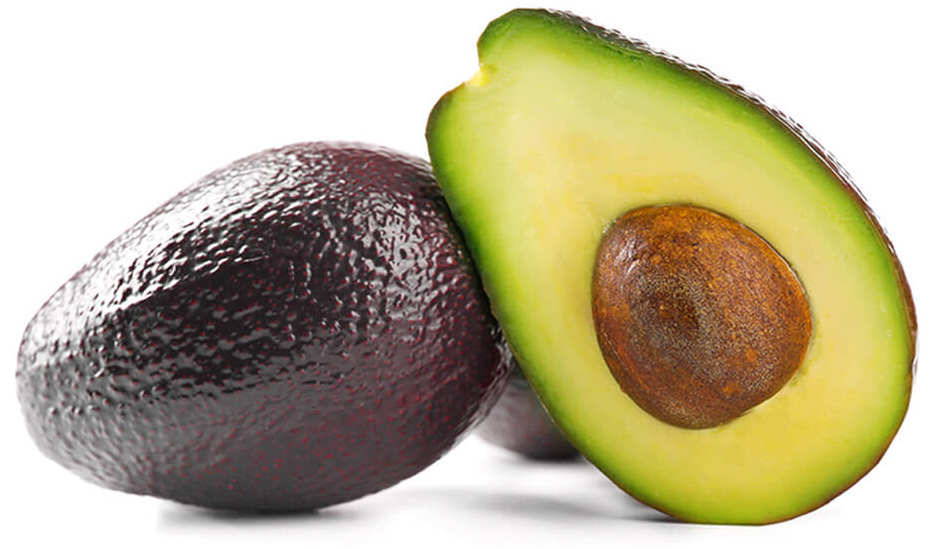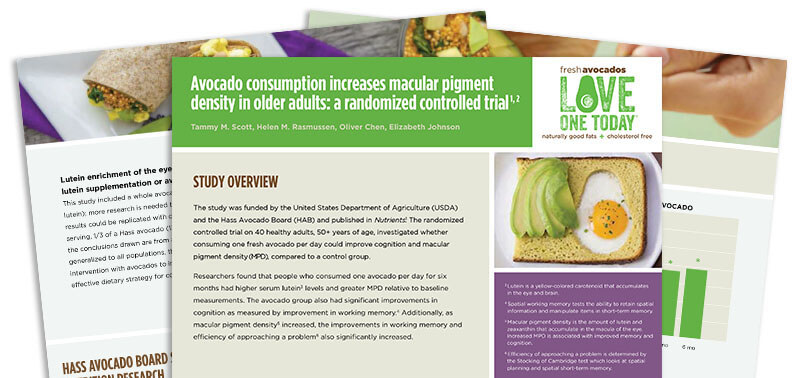Cognitive Decline
Advances in medicine allow us to live longer, but are we aging healthy? According to the World Health Organization (WHO), healthy life expectancy is not keeping up with the increase in life expectancy. In other words, US older adults have fewer healthy years without the burden of chronic diseases.1 Dementia, including Alzheimer’s disease, is one of the top chronic conditions affecting older adults and remains one of the leading causes of death.
Dementia and neurodegenerative diseases have a devastating impact on one’s life and even the normal aging process can still have a marked impact on independence and quality of life. In a normal aging brain, it’s common to experience slow processing (thinking), memory impairments, and/or other cognitive decline. The Alzheimer’s Association published a report that estimates that roughly 30% of adults over 60 have noticeable changes in cognitive abilities, such as memory, language, thinking, and judgment, that are greater than expected for their age. The estimated prevalence of all types of cognitive impairment (including all dementias, clinically ascribed cognitive impairment, and subjective cognitive impairment) increases to roughly 50% among octogenarians.2 With advances in health care, Americans are living well into their 70s and 80s, which begs the challenge of how to maintain a healthy mind as we age.
Preventing Cognitive Decline
The National Institute of Aging recommends a few key modifiable lifestyle changes to help reduce the risk of cognitive decline and maintain cognitive health. These small changes over time can add up to support brain function, including:
- Eat a balanced, nutrient-dense diet
- Regular physical activity
- Mental engagement
- Social engagement
In general, a balanced diet consisting of fruits and vegetables, whole grains, and lean meats while limiting saturated fats, and sugar can help reduce the risk of many chronic diseases—which itself can be beneficial for brain health. There is also some evidence that certain diets can help preserve cognitive function or reduce the risk of cognitive impairment. While there is no single diet or food recommended by U.S. health authorities for maintaining cognitive health, the National Institute of Aging promotes a few dietary patterns such as the Mediterranean, DASH—Dietary Approaches to Stop Hypertension, and MIND—Mediterranean-DASH combination diets. For example, the MIND or Mediterranean diet has been associated with slower cognitive decline, reduced rate of Alzheimer’s disease, lower risk of developing cognitive problems, thicker cortical regions, and less Alzheimer’s pathologies post-mortem. These brain-healthy dietary patterns have a few common factors:
- Encourage
- Nutrient-dense foods
- Antioxidant-rich foods
- Unsaturated fatty acids
- Fiber-rich whole grains, legumes, fruits and vegetables
- Limit
- Saturated fats
- Sugar
Researchers recognize a few biological mechanisms underlying age-related cognitive decline, including changes to 1) brain structure (e.g., white and grey matter composition and brain shrinkage), 2) neuroinflammation and oxidative stress, and 3) brain vasculature (e.g., cerebral blood flow and blood pressure).
Brain-healthy dietary patterns can support healthy brain aging. In terms of brain structure, healthy unsaturated fats can support cell membrane integrity in neurons which can reduce brain shrinkage.

Additionally, antioxidant-rich foods can help address inflammation and oxidative stress by quenching free radicals.3 The MIND, DASH, and Mediterranean diets support cardiovascular health, which can also support cerebrovascular health. Together, and over time, brain-healthy dietary patterns can help keep some of these neurocognitive changes at bay to help prevent cognitive decline.
Full of Brain-Boosting Potential
The avocado’s nutrient quality makes it well-suited as part of a brain-healthy dietary pattern. One-third of a medium avocado (50 grams) has 80 calories and contributes nearly 20 vitamins and minerals, making it a healthy, nutrient-dense choice. Avocados align with brain-healthy dietary patterns in a few key ways:
- Unsaturated Fatty Acids. Avocados contribute good fats to the diet, providing 5 grams of monounsaturated fat and 1 gram of polyunsaturated fat per 50-gram serving (one-third of a medium avocado).
- Antioxidants. Antioxidants—such as vitamins C, E, and lutein—help protect cells from damage caused by free radicals. Avocados contain 4% of the DV for vitamin C, 6% of the DV for vitamin E, and 136 micrograms of lutein per serving.
- Cardiovascular health. Not only can avocados help consumers meet the diet recommendations of the American Heart Association, but consuming avocados may help decrease LDL cholesterol, which can lead to plaque buildup in your arteries and result in heart disease or stroke. In a clinical study supported by the Avocado Nutrition Center, 45 overweight-obese adults added one avocado a day to their low-fat and moderate-fat oil diets. By adding the avocado, researchers noted increased blood antioxidant levels and decreased the oxidation of small, dense LDL-cholesterol levels. During this five-week cross-over study, researchers concluded that results from a single study could not be generalized to larger, more diverse populations.4 Still, the study supports the growing body of evidence demonstrating avocados as a heart-healthy fruit. Some factors of heart disease may be linked to brain and cognitive health. Taking better care of cardiovascular health through diet and lifestyle changes can help protect your heart and brain.
Avocados and Cognition
Emerging research suggests that avocado consumption may be beneficial for the aging brain. An observational study published in Frontiers in Nutrition in 2021 found that older adults who consume avocado or guacamole had better cognition than individuals who did not consume avocado or guacamole.

This cross-sectional study captured diet and cognition data from 2,886 adults over 60 in the 2011-2014 National Health and Nutrition Examination Survey (NHANES), which is known for being a nationally representative sample of the U.S. population. Despite the robust nature of NHANES, findings from observational research do not indicate causation. However, these data do provide a comprehensive snapshot of information from a large sample of individuals. These researchers found that compared to non-consumers, avocado consumers had significantly higher scores on cognition tests that evaluate short-term memory (Immediate Word Recall), long-term memory (Delayed Word Recall), general cognition composite score of memory, visuospatial abilities, and executive functioning. Even after controlling for all relevant confounders like sociodemographics (e.g., age, gender, income) and relevant health factors (e.g., BMI, Mediterranean diet score, smoking status, cardiovascular disease diagnosis), avocado consumption remained associated with significantly better cognition test scores in older adults.5
Considering the many nutrients found in avocados that may impact cognition, a research group from Tufts University sought to evaluate whether avocado consumption in older adults improved cognitive function. The antioxidant lutein preferentially deposits in neural tissue, such as the macular region of the eye. Researchers measured the macular pigment from lutein deposition not only for its antioxidant and anti-inflammatory role in eye health but also as a non-invasive marker of lutein concentrations in the brain. In this clinical study of 40 healthy, older adults, researchers found that people who consumed one avocado per day for six months had higher blood and eye lutein levels compared to when they started the study.
Additionally, the avocado group also had improvements in cognition as measured by improvement in working memory. They found that as macular pigment density increased, working memory and efficiency of approaching a problem also improved.
The research suggests a dietary intervention with avocados to increase neural lutein may be a useful dietary strategy for cognitive health.6
In conclusion, while life expectancy increases, maintaining cognitive health in old age remains a significant challenge. But simple lifestyle changes over time can make a difference in healthy cognitive aging, and it all begins with small steps toward healthy living.
Eating avocados is one nutrient-dense step toward a brain-heathy dietary pattern and may boost cognition in older adults.
References:
1. GHE: Life Expectancy and Healthy Life Expectancy.” World Health Organization, 2019. www.who.int/data/gho/data/themes/mortality-and-global-health-estimates/ghe-life-expectancy-and-healthy-life-expectancy.
2. Alzheimer’s Association. 2024 Alzheimer’s Disease Facts and Figures. Alzheimers Dementia. https://www.alz.org/alzheimers-dementia/facts-figures
3. Gonzales, Mitzi M., et al. “Biological aging processes underlying cognitive decline and neurodegenerative disease.” The Journal of Clinical Investigation 2022.
4. Wang, Li et al. “A Moderate-Fat Diet with One Avocado per Day Increases Plasma Antioxidants and Decreases the Oxidation of Small, Dense LDL in Adults with Overweight and Obesity: A Randomized Controlled Trial.” The Journal of Nutrition, 2020.
5. Cheng, F. W., Ford, N. A., & Taylor, M. K. “US Older Adults That Consume Avocado or Guacamole Have Better Cognition Than Non-consumers: National Health and Nutrition Examination Survey 2011-2014.” Frontiers in nutrition. 2021.
6. Scott, T. M., Rasmussen, H. M., Chen, O., & Johnson, E. J. “Avocado Consumption Increases Macular Pigment Density in Older Adults: A Randomized, Controlled Trial.” Nutrients. 2017.




